Vecchioni: “You must live the life you love”
The singer-songwriter, who received the Chiara Prize “Le parole della musica”, at Ville Ponti, spoke openly about his life, admitting that he has experienced all that he has loved, including pain.

The award ceremony began with a video accompanied by the notes of “Samarcanda”, with the lights of Villa Napoleonica off. The audience first stamped their feet, then clapped their hands, in time to the music and accompanied a version of the famous ballad, which was performed with Angelo Branduardi, from Varese, in a video with the two artistes playing Laurel and Hardy. Immediately afterwards came the beautiful “Blue moon”. It was all very moving, because the two videos talked about the two events we all share: life and death.
When Roberto Vecchioni came onto the stage of the Chiara Prize to receive the award “Le parole della musica” (Words in music), his eyes had tears in them; they were neither happy nor sad, but deeply moved. We cannot blame him. At the age of 73, there is nothing wrong with confessing to some past mischief, with using a few swearwords, with being carried away by the emotions of the moment, including tears.
Democracy and purity – “I’ve been trying to communicate the purity of emotions for 40 years, because that’s what matters. It’s important to hold on to your instinctive feelings, as did Merini and Rimbaud, who shared emotions in a unique way. I admit that I also wrote for fun, but always looking for that purity.” Vecchioni dealt with a difficult topic, namely the relationship between democracy and beauty, which do not always work to the same end. “Democracy works for justice and freedom, but not for beauty, which, most often, the majority of people don’t have.”
Vecchioni is a master at keeping the audience’s attention, and the three Tenco interviewers, Enrico de Angelis, Antonio Silva and the journalist Vittorio Colombo supported him ably. “Sometimes nasty things happen,” Vecchioni continued, “for example, it’s been crazy at the Tenco. Ah, but the Tenco judges always award Paolo Conte for something. They’re crazy about him. At the same time, he is great.”
Bob Dylan deserved the Nobel Prize – When people were deciding whether or not Dylan should get the Nobel Prize, Vecchioni made his alliance immediately clear. “I’ve been a fan of Bob Dylan for ages, because he showed us that the imperfection of concrete things matters more than the perfection of abstract things. And I’d like to remind Alessandro Baricco, who said that songs aren’t literature and that literature doesn’t correspond with writing but with the word, that he’s a legend and an archetype. Singing is a wonderful kind of communication, even the ancients used to sing their prayers.”
The teacher of Greek – Vecchioni is one of the few singer-songwriters, who, despite being famous, continued to do a normal job, to teach Greek at the “Parini” High School, in Milan. “The word is sensitive,” he pointed out. “You don’t study Greek to speak it but to learn from it. And it’s essential, because it teaches you conciseness, depth of thought, which are essential in a life where you train up to the age of 18, and then start running.”
When I met poet Untale, that is, Montale – “My father was a crazy player and womaniser,” Vecchioni said. “He sold fabrics and, for a certain time in his life, was in love with painting and began to buy paintings all over the place; all worthless, but he knew something about art. One day, he took me to the Santa Lucia Pizzeria, in Milan. It was famous because all the artists, actors and poets used to go there, and he would point them all out to me. ‘Can you see that one? Do you see that other one?’ He told me their names and surnames. One day he pointed to some guy, who wasn’t exactly good-looking, with his hair in a mess. ‘Can you see that man? He’s a great poet, his name’s Montale.’ I looked at him, and asked, ‘Dad, what do poets do?’ ‘Poets see things that we can’t see,’ he replied quickly, and then went straight to the toilet. I was a kid; I worked up the courage and went to the poet Untale, because that’s what I’d heard. And asked him, ‘Mr Untale, if it’s true that poets see what other people can’t see, can you tell me where my electric train ended up?’ Montale was very kind; he smiled and said he didn’t know. As soon as my dad had come back, I said, ‘It’s not true that Untale is a great poet; he can’t see anything.’”
The moral of a lifetime – Einaudi have just published “La vita che si ama” (The Life You Love). Vecchioni has called it an autobiographical book, written to answer the questions of his four, grown-up children. “One day, my thirty-year-old daughter told me that they didn’t know me very well; they couldn’t understand why I was so dynamic and witty on stage, but at home, I was so morose, a jerk, lost, staring out of the window. ‘What are you really like?’ she asked. I replied with this book, saying that, basically, the things that have impressed me are the little things, and that happiness is being with others and with yourself. It was then that I remembered a phrase that my mother, a true Neapolitan, would say. ‘Robertino, you must live the life you love.’”
The masterpiece of Luci a San Siro – It is one of Vecchioni’s most famous songs, written the night before he left for military service, when his girlfriend, who he was madly in love with, said she did not love him anymore. “It was deeply painful, because everything was going well: we loved each other, there was perfect harmony, there was passion, sex, feeling, and all of a sudden, it all vanished. Then, I decided I would keep the things I love forever, so in the song, that girl will always be just as she was at that moment. And to overcome time, I put everything I felt at the time into it. ‘Luci a San Siro’ is proof that happiness is sometimes masked by pain.”
TAG ARTICOLO
La community di VareseNews
Loro ne fanno già parte
Ultimi commenti
Emanuele Zanetti su Motociclista di Ferno ucciso da un orso in Romania
GrandeFratello su Superate le 700 firme per la petizione sul recupero del Grand Hotel Campo dei Fiori di Varese
Felice su Motociclista di Ferno ucciso da un orso in Romania
Stefano64 su Neil Young torna dopo l'enorme successo di Harvest: ma non è il disco che tutti si aspettano
Alessandro Zanzi su Superate le 700 firme per la petizione sul recupero del Grand Hotel Campo dei Fiori di Varese
Felice su La bibliocabina, la panchina e il cane che fa pipì. A Fagnano Olona scoppia la polemica






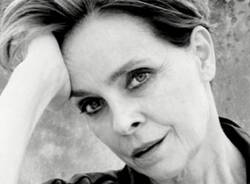
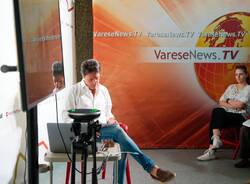
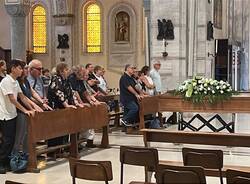
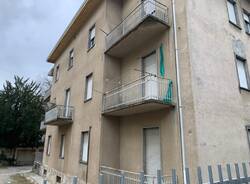

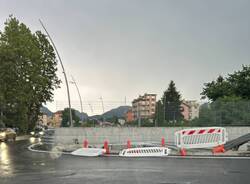

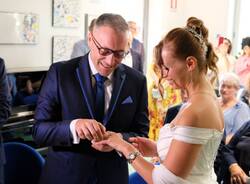

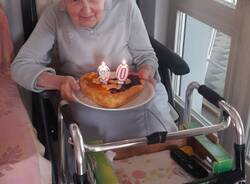




Accedi o registrati per commentare questo articolo.
L'email è richiesta ma non verrà mostrata ai visitatori. Il contenuto di questo commento esprime il pensiero dell'autore e non rappresenta la linea editoriale di VareseNews.it, che rimane autonoma e indipendente. I messaggi inclusi nei commenti non sono testi giornalistici, ma post inviati dai singoli lettori che possono essere automaticamente pubblicati senza filtro preventivo. I commenti che includano uno o più link a siti esterni verranno rimossi in automatico dal sistema.